- Serbia
Get to know Serbia
- Citizens
Culture and science
Health services
Pension and disability insurance
- Business
Employment
Economy
- Media
- Government
- Contact
Keep in touch
Contact form
Back
Keepin touch
Whether you have a question, comment, suggestion or any problem in the purview of the government, send us your message and we will try to respond as soon as possible. If your problem is not in our purview, we will forward your message to the relevant institution.
Q:
A:
Serbia completes screening for all negotiating chapters
Belgrade/Brussels,
24 March 2015
Serbia's chief EU negotiator Tanja Miscevic said that Serbia today finished the screening of the last of the 35 chapters in its EU accession talks, completing a significant section of its European path.
Much work lies ahead for us now to prepare the opening of the first chapters, Miscevic said after the screening for Chapter 33 (budget and finances) ended.
In Serbia's case, the screening, a process of a detailed assessment of the compliance of the candidate country's regulations with EU standards, lasted for nearly a year and a half.
During that time, we held around 500 presentations for European Commission experts, with more than 700 people from ministries, regulatory bodies and the civil sector participating, Miscevic said.
The next step in the negotiation process are European Commission reports on the chapters, followed by action plans of the Serbian government, which must be approved by the European Council before any chapters are opened.
Action plans for a number of chapters have already been completed and sent to the Council, and we are rapidly working on the third version of the action plans for chapters 23 and 24, relating to the judiciary and fundamental rights, she said.
She expressed the hope that the first chapters will be opened as soon as possible, noting that, in addition to the technical requirements, political requirements from Chapter 35 must be met, which refers to the process of normalisation of relations between Belgrade and Pristina.
Serbia will be relying on the experience of Slovenia, Croatia and Montenegro and will intensively work on the implementation of action plans and will be ready when the Council green lights the opening of chapters, she said.
In Serbia's case, the screening, a process of a detailed assessment of the compliance of the candidate country's regulations with EU standards, lasted for nearly a year and a half.
During that time, we held around 500 presentations for European Commission experts, with more than 700 people from ministries, regulatory bodies and the civil sector participating, Miscevic said.
The next step in the negotiation process are European Commission reports on the chapters, followed by action plans of the Serbian government, which must be approved by the European Council before any chapters are opened.
Action plans for a number of chapters have already been completed and sent to the Council, and we are rapidly working on the third version of the action plans for chapters 23 and 24, relating to the judiciary and fundamental rights, she said.
She expressed the hope that the first chapters will be opened as soon as possible, noting that, in addition to the technical requirements, political requirements from Chapter 35 must be met, which refers to the process of normalisation of relations between Belgrade and Pristina.
Serbia will be relying on the experience of Slovenia, Croatia and Montenegro and will intensively work on the implementation of action plans and will be ready when the Council green lights the opening of chapters, she said.
-
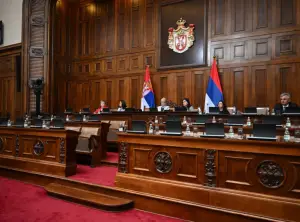 Belgrade, 7 November 2025
Belgrade, 7 November 2025Parliament adopts multiple laws
-
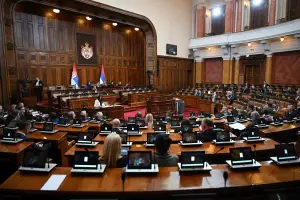 Belgrade, 22 October 2025
Belgrade, 22 October 2025Parliament adopts several laws, ratifies multiple international agreements
-
 Belgrade, 15 October 2025
Belgrade, 15 October 2025Vučić welcomes Ursula von der Leyen in front of Palace of Serbia
-
 Belgrade/New York, 24 September 2025
Belgrade/New York, 24 September 2025Respect for UN Charter obligation of all countries
-
 Belgrade, 13 August 2025
Belgrade, 13 August 2025High level of understanding, agreement between Serbia, Austria
-
 Belgrade, 13 May 2025
Belgrade, 13 May 2025Serbia's sincere, firm commitment to European path, reforms and dialogue
-
 Belgrade, 13 May 2025
Belgrade, 13 May 2025Vučić welcomes European Council President in front of Palace of Serbia
-
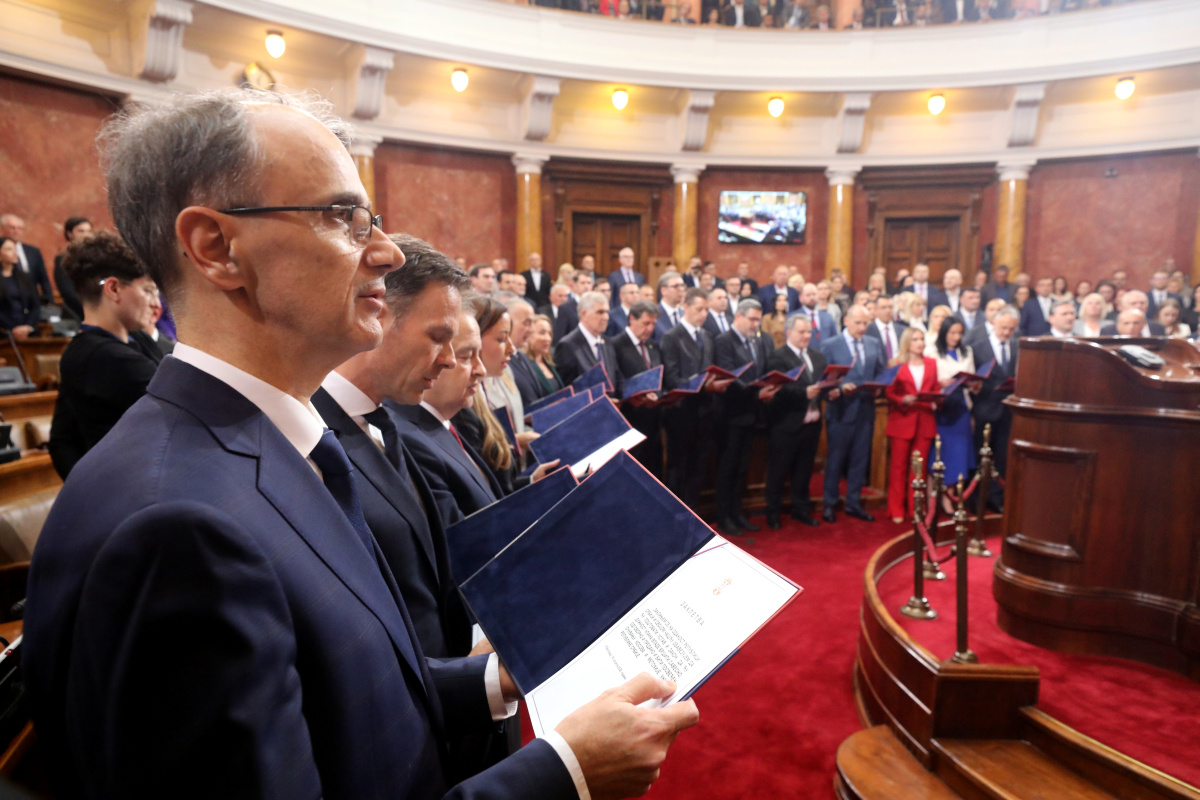 Belgrade, 16 April 2025
Belgrade, 16 April 2025New Serbian government voted in
-
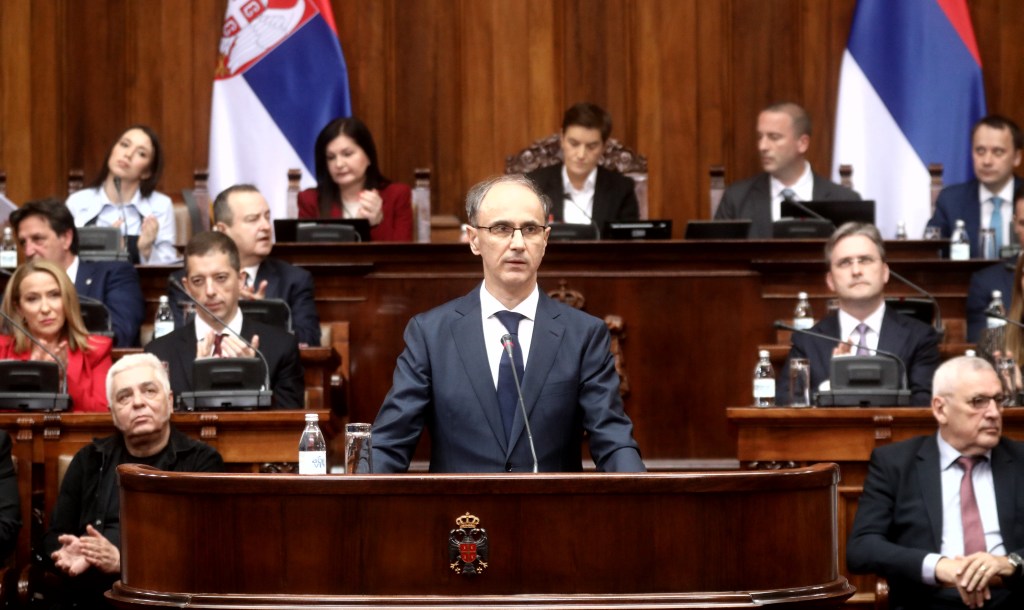 Belgrade, 15 April 2025
Belgrade, 15 April 2025Building unity through dialogue, tolerance, respect for value system
-
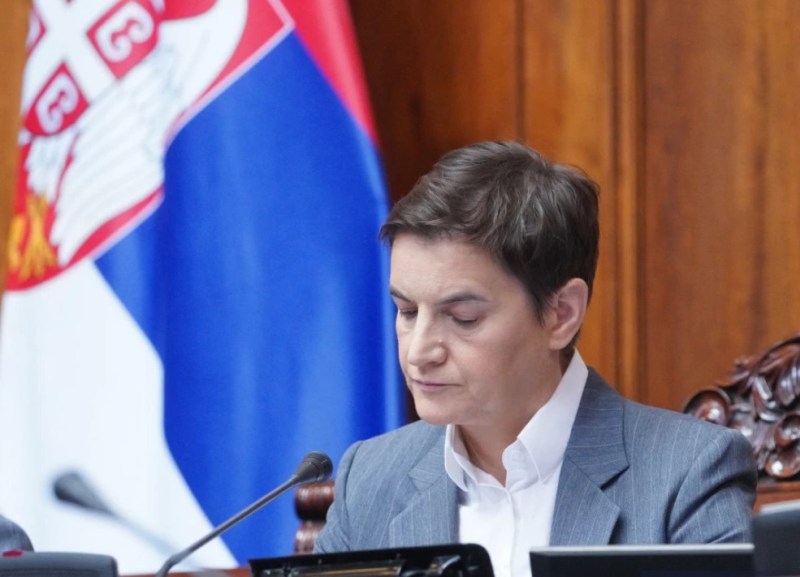 Belgrade, 14 April 2025
Belgrade, 14 April 2025National Assembly speaker convenes session on government election
